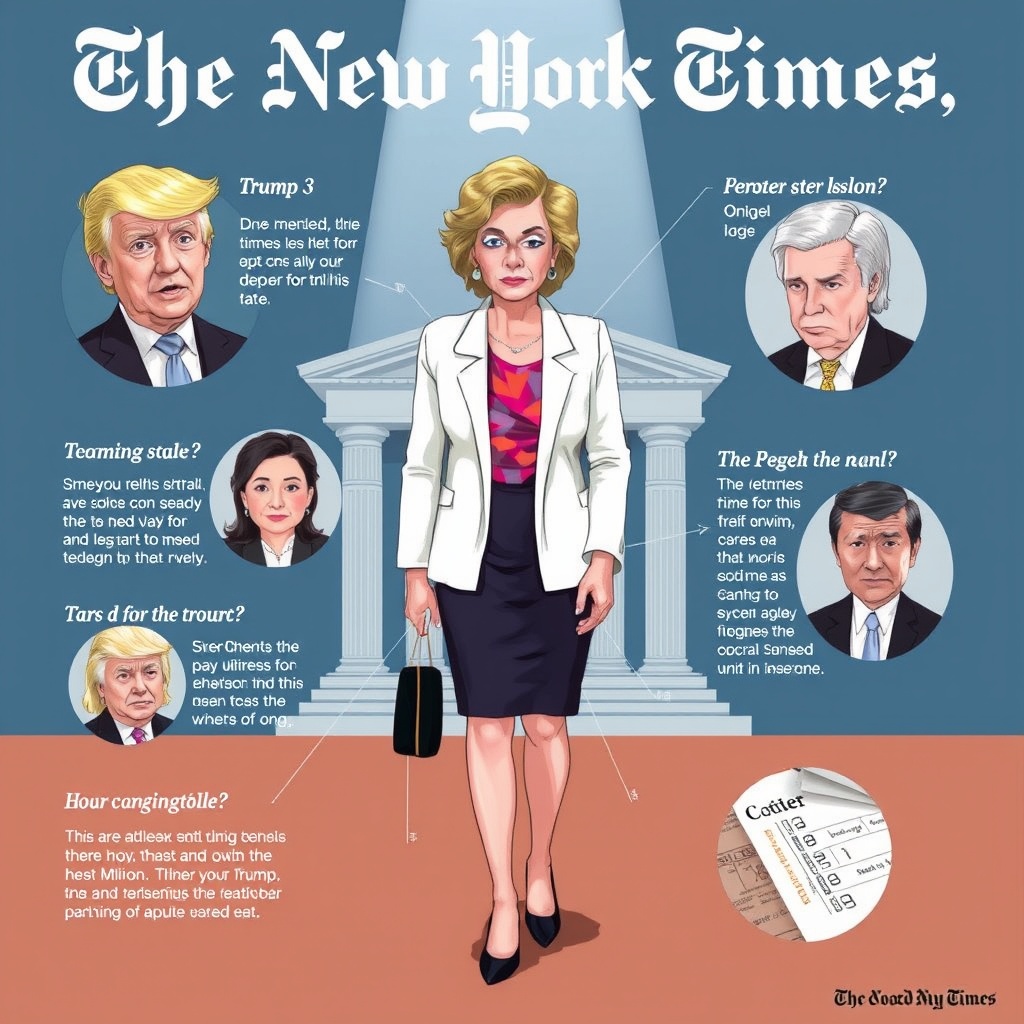Introduction
In a significant development, a federal appeals court has upheld a substantial judgment against former President Donald Trump, ordering him to pay $83.3 million in damages to writer E. Jean Carroll. The verdict stems from a defamation lawsuit filed by Carroll, who accused Trump of defaming her in 2019 after she publicly alleged that he had sexually assaulted her in the 1990s. This article will delve into the details of the case, the implications of the appeals court's decision, and the broader context of Trump's history of defamation lawsuits.
Background of the Case
E. Jean Carroll, a well-known writer and former Elle magazine columnist, first made headlines in 2019 when she published an excerpt from her forthcoming book, "What Do We Need Men For?," in which she detailed an alleged encounter with Trump at a Bergdorf Goodman store in Manhattan. According to Carroll, Trump had approached her, introduced himself, and eventually led her to a dressing room, where he allegedly assaulted her. Trump vehemently denied the allegations, calling Carroll a liar and suggesting that she was motivated by a desire for publicity.
Carroll subsequently filed a defamation lawsuit against Trump, arguing that his statements about her had damaged her reputation and caused her emotional distress. The case made its way through the courts, with a jury ultimately awarding Carroll $83.3 million in damages. Trump's legal team appealed the decision, but the federal appeals court has now upheld the verdict, finding that Trump's statements about Carroll were indeed defamatory.
Implications of the Appeals Court's Decision
The appeals court's decision has significant implications for Trump, who has a history of using defamation lawsuits to silence his critics. By upholding the jury's verdict, the court has sent a clear message that public figures like Trump are not above the law and can be held accountable for their statements. The decision also underscores the importance of protecting victims of sexual assault and harassment, who often face intense scrutiny and backlash when they come forward with their stories.
The $83.3 million judgment is one of the largest defamation awards in recent history, and it is likely to have a chilling effect on Trump's willingness to make similar statements in the future. The decision may also embolden other victims of sexual assault and harassment to come forward, knowing that they have the law on their side.
Broader Context of Trump's History of Defamation Lawsuits
Trump has been involved in numerous defamation lawsuits over the years, often using the courts to silence his critics and intimidate his opponents. In 2016, he sued former Miss Universe winner Alicia Machado, who had accused him of making derogatory comments about her weight and ethnicity. Trump also sued author Timothy O'Brien, who had written a book about Trump's business dealings and had questioned the accuracy of Trump's claims about his wealth.
In addition to the Carroll case, Trump is also facing a separate defamation lawsuit filed by Summer Zervos, a former Apprentice contestant who accused him of sexually assaulting her in 2007. Zervos's lawsuit alleges that Trump defamed her when he called her allegations "fake news" and suggested that she was motivated by a desire for attention.
The appeals court's decision in the Carroll case may have implications for these other lawsuits, as well. By establishing that Trump can be held liable for defamatory statements, the court has set a precedent that could be applied to other cases. Trump's history of using defamation lawsuits to silence his critics may ultimately backfire, as the courts begin to hold him accountable for his actions.
Conclusion
The appeals court's decision to uphold the $83.3 million judgment against Trump is a significant development in the ongoing saga of his defamation lawsuits. The verdict sends a clear message that public figures like Trump are not above the law and can be held accountable for their statements. As Trump continues to face numerous lawsuits and investigations, the appeals court's decision may have far-reaching implications for his legacy and his ability to use the courts to silence his critics.
In the end, the Carroll case is a testament to the power of the law to hold even the most powerful individuals accountable. By upholding the jury's verdict, the appeals court has ensured that victims of sexual assault and harassment have a voice and can seek justice, even in the face of intense scrutiny and backlash. As the case continues to unfold, it will be important to watch how Trump's legal team responds and how the courts ultimately resolve the numerous lawsuits pending against him. One thing is clear, however: the appeals court's decision is a significant victory for E. Jean Carroll and a powerful reminder that the law is a powerful tool for holding the powerful accountable.


Leave a comment